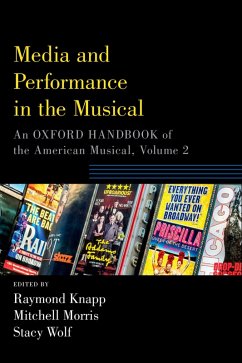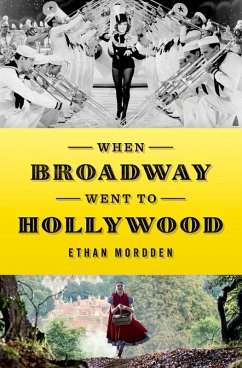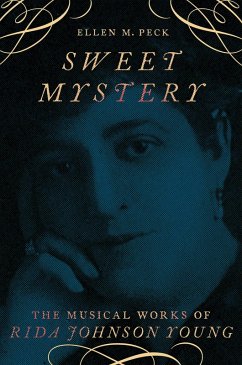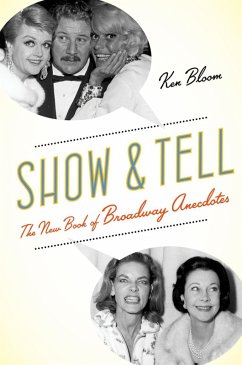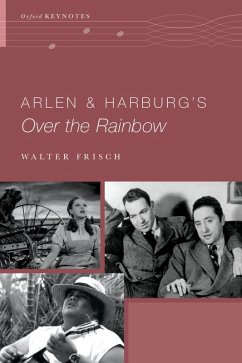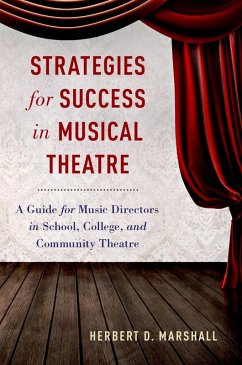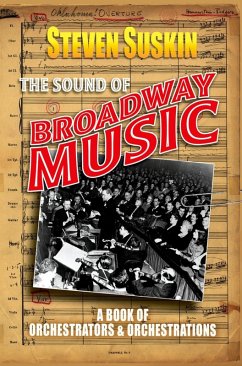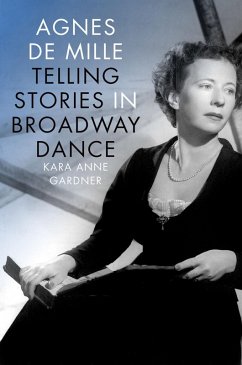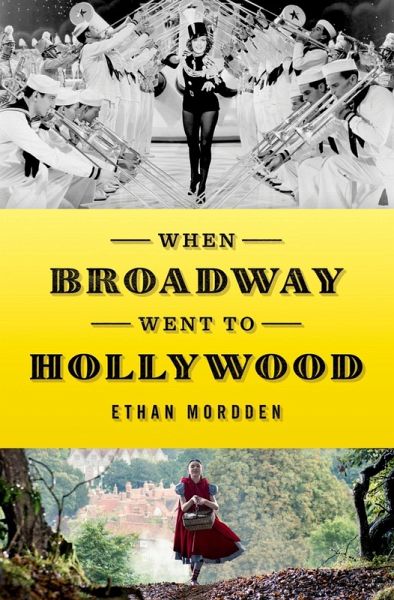
When Broadway Went to Hollywood (eBook, ePUB)
Versandkostenfrei!
Sofort per Download lieferbar
7,99 €
inkl. MwSt.
Weitere Ausgaben:

PAYBACK Punkte
4 °P sammeln!
When films like The Jazz Singer started to integrate synchronized music, in the late 1920s many ambitious songwriting pioneers of the Great White Way - George and Ira Gershwin, Cole Porter, Richard Rodgers, and Lorenz Hart, among many others - were enticed westward by Hollywood studios' promises of national exposure and top dollar success. But what happened when writers native to the business of Broadway ran into the very different business of Hollywood? Their movies had their producer despots, their stacking of writing teams on a single project, their use of five or six songs per story where ...
When films like The Jazz Singer started to integrate synchronized music, in the late 1920s many ambitious songwriting pioneers of the Great White Way - George and Ira Gershwin, Cole Porter, Richard Rodgers, and Lorenz Hart, among many others - were enticed westward by Hollywood studios' promises of national exposure and top dollar success. But what happened when writers native to the business of Broadway ran into the very different business of Hollywood? Their movies had their producer despots, their stacking of writing teams on a single project, their use of five or six songs per story where Broadway fit in a dozen, and it seemed as if everyone in Hollywood was uncomfortable with characters bursting into song on the street, in your living room, or in "a cottage small by a waterfall." Did the movies give theater writers a chance to expand their art, or did mass marketing ruin the musical's quintessential charm? Is it possible to trace the history of the musical through both stage and screen manifestations, or did Broadway and Hollywood give rise to two wholly irreconcilable art forms? And, finally, did any New York writer or writing team create a film musical as enthralling and timeless as their work for the stage? In When Broadway Went to Hollywood, writer and celebrated steward of musical theatre Ethan Mordden directs his unmistakable wit and whimsy to these challenging questions and more, charting the volatile and galvanizing influence of Broadway on Hollywood (and vice versa) throughout the twentieth century. Along the way, he takes us behind the scenes of the great Hollywood musicals you've seen and loved (The Wizard of Oz, Gigi, The Sound of Music, Chicago, West Side Story, The Music Man, Grease) as well as some of the outrageous flops you probably haven't. The first book to tell the story of how Broadway affected the Hollywood musical, When Broadway Goes to Hollywood is sure to thrill theatre buffs and movie lovers alike.
Dieser Download kann aus rechtlichen Gründen nur mit Rechnungsadresse in A, B, BG, CY, CZ, D, DK, EW, E, FIN, F, GR, HR, H, IRL, I, LT, L, LR, M, NL, PL, P, R, S, SLO, SK ausgeliefert werden.




